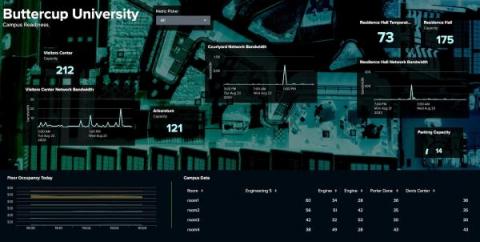Operations | Monitoring | ITSM | DevOps | Cloud
Latest News
Incident Management Today: Benefits, 6-Step Process & Best Practices
Operational Intelligence: 6 Steps To Get Started
Serverless Elasticsearch: Is ELK or OpenSearch Serverless Architecture Effective?
Here's the question of the hour. Can you use serverless Elasticsearch or OpenSearch effectively at scale, while keeping your budget in check? The biggest historical pain points around Elasticsearch and OpenSearch are their management complexity and costs. Despite announcements from both Elasticsearch and OpenSearch around serverless capabilities, these challenges remain. Both of these tools are not truly serverless, let alone stateless, hiding their underlying complexity and passing along higher management costs to the customer.
The Quirky World of Anomaly Detection
Why Observability Architecture Matters in Modern IT Spaces
Observability architecture and design is becoming more important than ever among all types of IT teams. That’s because core elements in observability architecture are pivotal in ensuring complex software systems’ smooth functioning, reliability and resilience. And observability design can help you achieve operational excellence and deliver exceptional user experiences. In this article, we’ll delve into the vital role of observability design and architecture in IT environments.
Deepening the Path from Open Source to Essential Observability
For nearly a decade, Logz.io has offered a proven pathway for organizations using the world’s most popular open source tools to monitor and analyze their cloud systems—allowing them to enlist a far more efficient and cost-effective approach.
Distributed Systems Explained
How to deploy Hello World Elastic Observability on Google Cloud Run
Elastic Cloud Observability is the premiere tool to provide visibility into your running web apps. Google Cloud Run is the serverless platform of choice to run your web apps that need to scale up massively and scale down to zero. Elastic Observability combined with Google Cloud Run is the perfect solution for developers to deploy web apps that are auto-scaled with fully observable operations, in a way that’s straightforward to implement and manage.
Parquet File Format: The Complete Guide
How you choose to store and process your system data can have significant implications on the cost and performance of your system. These implications are magnified when your system has data-intensive operations such as machine learning, AI, or microservices. And that’s why it’s crucial to find the right data format. For example, Parquet file format can help you save storage space and costs, without compromising on performance.











